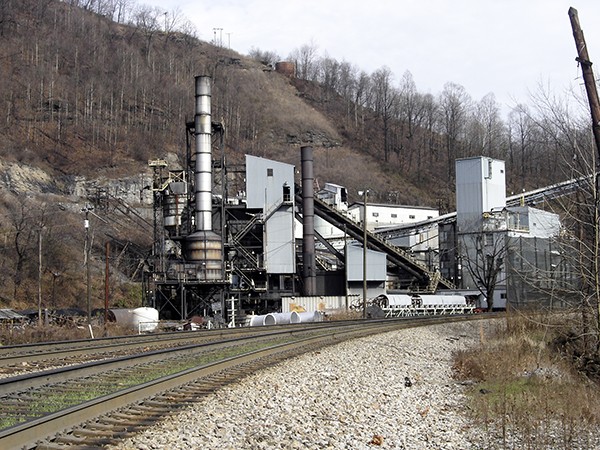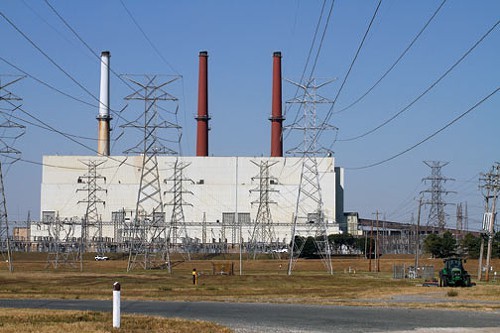In the first week of August, for the second time in as many weeks, Donald Trump visited West Virginia. On his first trip, he made a mockery of the Boy Scouts’ longstanding tradition of hosting the sitting president at its national jamboree. His second visit was more purely political, a visit in which he yet again “fired up his base.”
Two visits. Two weeks. I can’t help but think of the “fool me once” maxim, most famously bumbled by “Dubya,” President George W. Bush, a leader whose inadequacies are now somewhat endearing in comparison to the reckless narcissist the country is saddled with now.
And ride West Virginia is just what this president has done. He’s especially fond of saddling up in the Mountain State, the beaten-down workhorse that dutifully helped carry him to the White House.
 Coalcampusa | Dreamstime.com
Coalcampusa | Dreamstime.com
As a West Virginia native and repatriate (by way of Memphis six years ago), I am bewildered by my home state’s support for Donald Trump. Here we have a man whose lifestyle and personality gives us locals no indication whatsoever that he could relate to our home, one of the most troubled states in the nation, much less genuinely care.
He’s bringing back coal. He loves coal miners. Nobody (even here) cares about coal like Trump does. Big numbers. Better than ever. Spray all that big-ness on the crowd until the landscape smells so fresh no one notices the opioid crisis that’s consuming our state. Over the past six years, drug companies have pumped 780 million pills into our state’s most vulnerable, poorest communities. “You have a problem in West Virginia, and we are going to solve that problem.” That’s it, all he can say about an epidemic fueled by the kinds of “successful business” he adores.
Supporters nationwide embrace Donald Trump’s “not your average politician” status, effectively signing off on his wildly immature and improvident behavior. When he said in 2016 that he “loves the poorly educated,” this wasn’t a declaration of his humanity. Rather, it was his usual approach, typical of a man who says he could shoot somebody on 5th Avenue and not lose voters.
For Trump, West Virginians are easy prey. They’re desperate for help yet weary of failed attempts at change. In the state’s southern counties, barely clinging as they are to life, those who’ve never known anything but coal find hope in Trump’s promises, clinging to an industry whose heyday has long since passed.
This is a twisted perspective that angers many of us West Virginians who know our home state as more than a political pawn. Take Morgantown, where I live: the city is the progressive, diverse home of West Virginia University, which houses the science department that discovered Volkswagen was cheating emissions tests and boasts the country’s largest forensic science and crime-scene training complex.
That’s but a glimpse of a state rich with history and cultural heritage. Does the president know any of this? Doubtful. He’s more interested in the low-hanging fruit of big promises, and he offers little in return.
While it’s true that coal has been given a small boost since Trump took office, even top U.S. coal mogul Robert Murray thinks Trump should “temper his expectations” about the industry’s revival. Meanwhile, southern West Virginia awaits further devastation, thanks to the president’s rollback of the Obama-era Stream Protection Rule, which was intended to protect water supplies from the dangers of coal waste.
Where, then, are the voices from West Virginia communities that have suffered at the hands of Big Coal? Where are the people profiled in documentaries like Blood on the Mountain and On Coal River? If they are speaking out, their voices are not loud enough. Or perhaps these families are simply too busy nursing illnesses and struggling to survive to waste precious time pleading their cases to a man who wouldn’t listen anyway.
When I left Memphis in 2011 to move home, I wasn’t prepared for what had happened to West Virginia in the years I’d been away. From the utter destruction of drug addiction to the sobering fact of being ranked the country’s worst state for business, there’s so much work to be done. If President Trump sincerely cares about West Virginians, he needs to lay off the self-worship and get on with trying to relate to our troubles.
Former Memphian Danielle Costello is a freelance writer/editor based in Morgantown in her native West Virginia. Her most recent publication is Memphis magazine’s April 2017 cover story on 1990s rock star Jeff Buckley. Contact her at typedreams76@gmail.com.
